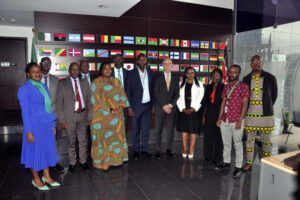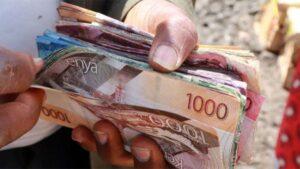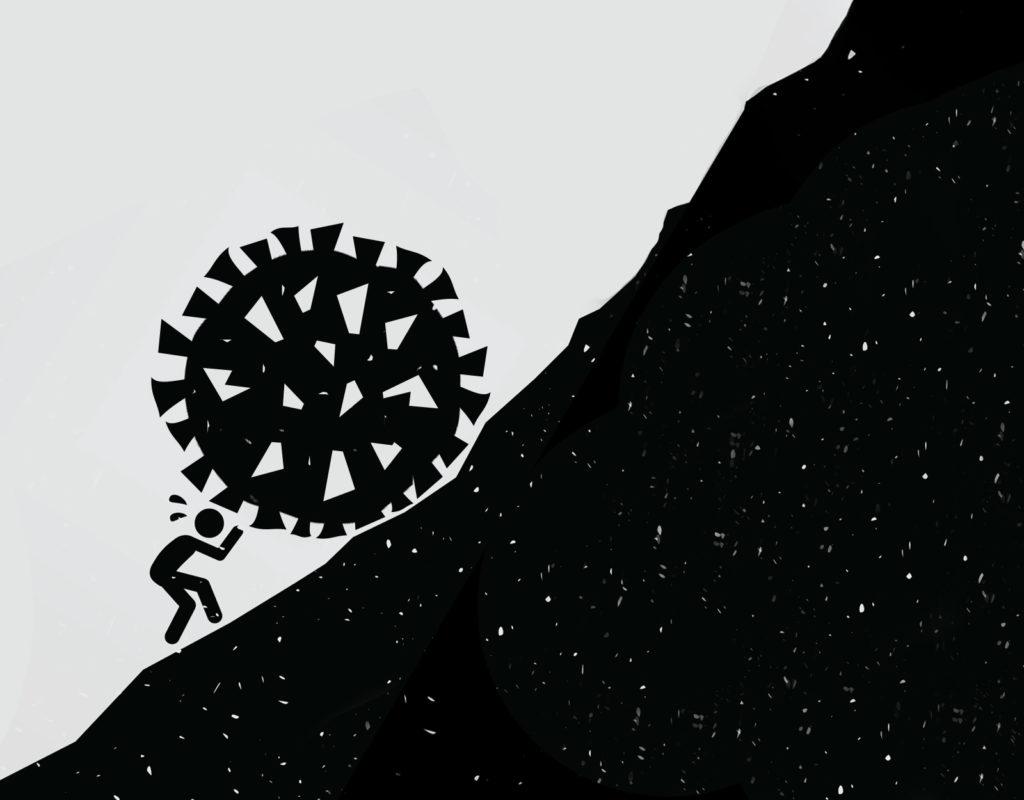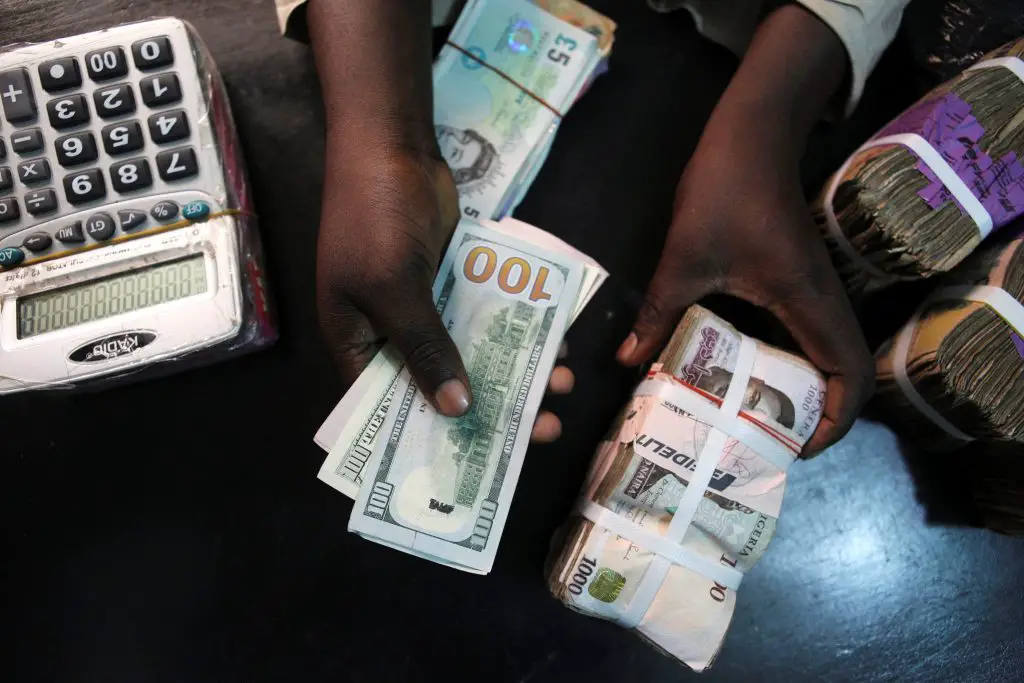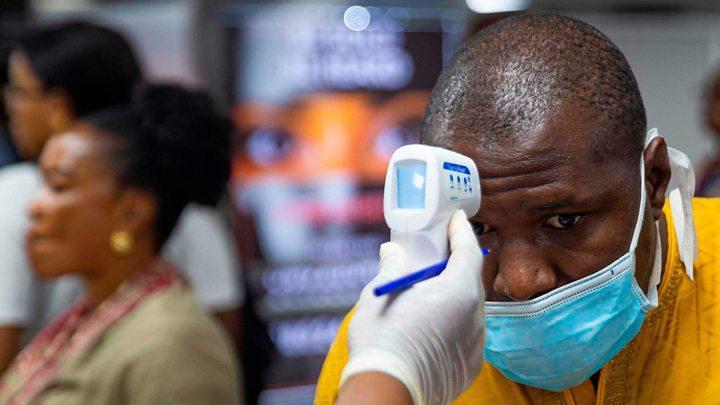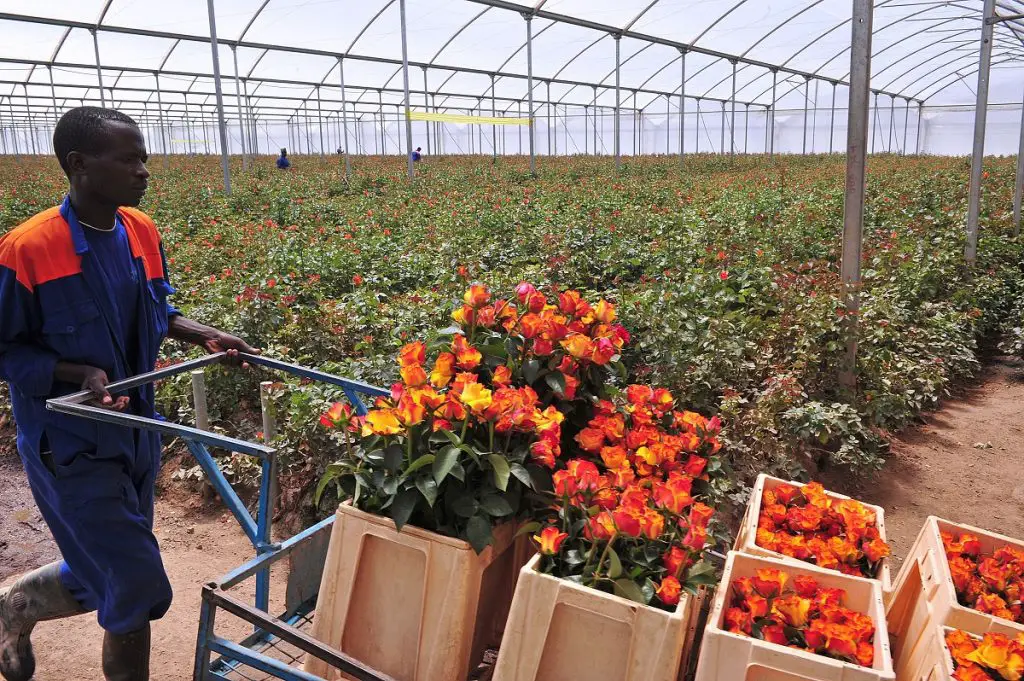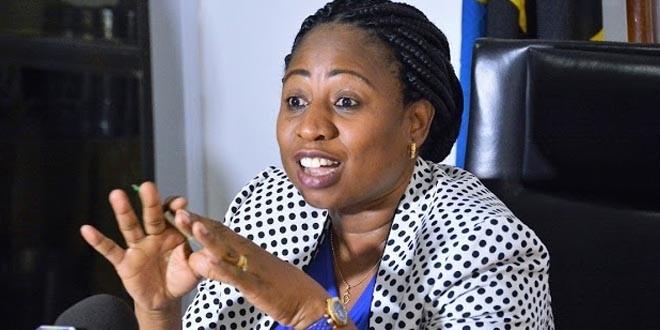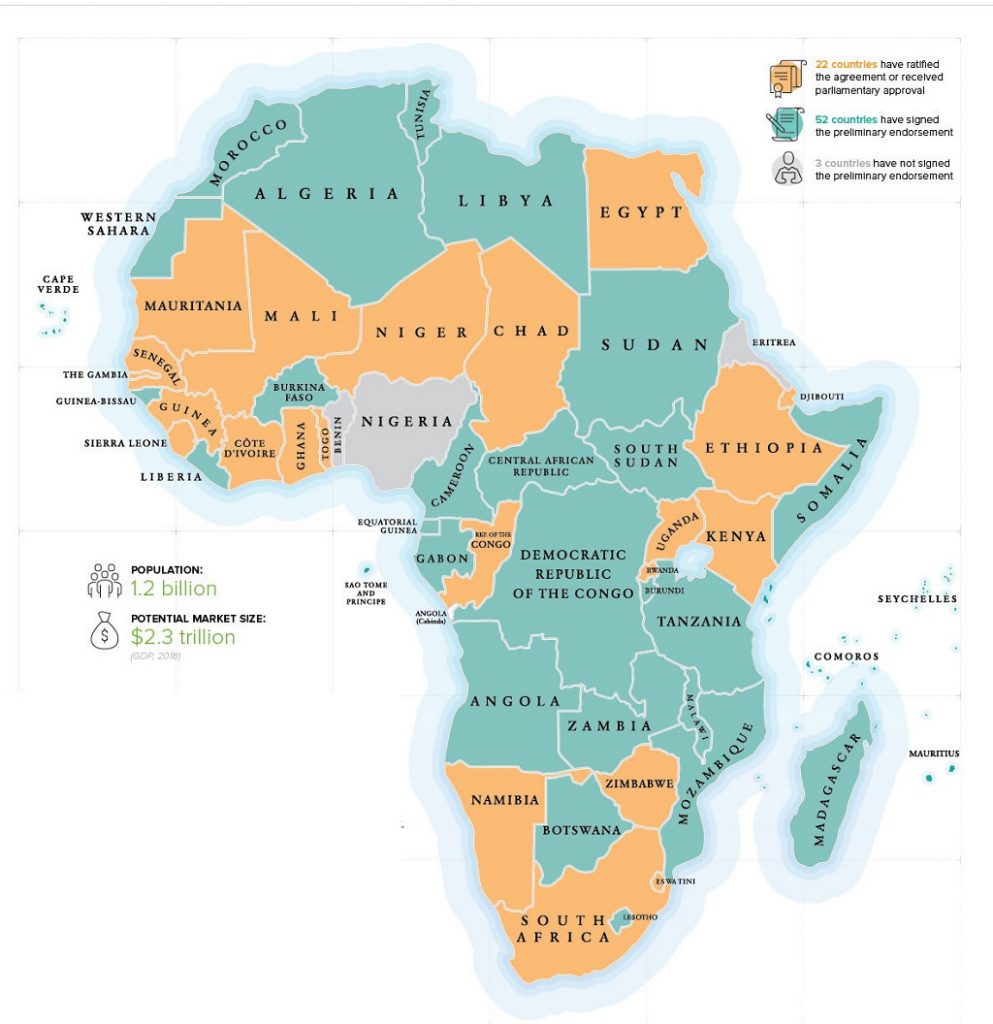- Kenyan Farmers Receive $2M Boost from Africa Fertiliser Financing Mechanism
- Brace for High Interest Rates for a Longer Period World Bank Warns Kenya
- Kenya-Ethiopia Trade Relations: Legislators Advocate for Policy Alignment to Boost Ties
- Visualising the state of debt in Africa 2024
- Abu Dhabi radiates optimism as over 300 startups join AIM Congress 2024
- TLcom Capital Raises $154 million in Funding to Boost Its African Growth
- Africa’s $824Bn debt, resource-backed opaque loans slowing growth — AfDB
- LB Investment brings $1.2 trillion portfolio display to AIM Congress spotlight
Browsing: COVID-19
During the 2014-2015 Ebola outbreak in West Africa the disease brought the economies of the region to its knees. The overall impact of the Ebola crisis on Guinea, Liberia, and Sierra Leone was estimated by the World Bank to have hit $2.8 billion ($600 million for Guinea, $300 million for Liberia, and $1.9 billion for Sierra Leone). This included the shocks in 2014 and 2015, and 2016 as the economic impact is outlasting the epidemiological impact.
The economies of the region remained in recession for a while and the countries are still showing signs of human capital loss as well as economic stagnation. Liberia lost 8% of its doctors, nurses, and midwives to Ebola. Sierra Leone and Guinea lost 7% and 1% of their healthcare workers, respectively.
The United States, the United Kingdom, and Germany were the top donors to the international Ebola response, donating more than $3.611 billion (US$) …
African nations (via their ministers) have agreed to call a debt relief support from bilateral, multilateral and commercial partners with the support of the multilateral and bilateral financial institutions such as the International Monetary Fund (IMF), the World Bank Group, and European Union (EU), amid coronavirus outbreak (COVID-19) United Nations Economic Commission for Africa (UNECA) revealed in a statement.
The agreement was germinated from the second virtual meeting on Tuesday, hosted by Vera Songwe, Executive Secretary of the Economic Commission for Africa, and co-chaired by Ministers Tito Mboweni of South Africa and Ken Ofori-Atta of Ghana.
The meeting stressed the need to take possible actions to downplay and bring the spread of COVID-19 under control in the short term.
“The call for debt relief, it was emphasized, should be for all of Africa and should be undertaken in a coordinated and collaborative way. They called for a special purpose vehicle …
Tanzania, East Africa’s populous nation has confirmed today April 1 another coronavirus (COVID-19) case, totalling the national case at number 20, the Ministry of Health revealed.
According to the ministry, the patients is a 42-year-old female American national, who was in contact with an infected person, who also travelled abroad before returning to Tanzania.
So far, the patients are spread out in three regions, and according to the Minister of Health Ummy Mwalimu statement to the public, two patients have already recovered, and one died yesterday March 31.
The highly contagious pandemic made its way to Tanzania a month ago via a female Tanzanian national who returned from Belgium, since then—Tanzania has been on its toes rolling in several measures to curb the spread of the COVID-19.
Also, coronavirus cases have reached over 5,500 and almost more than 170 death have been reported across the continent.
Currently, Tanzania has closed-down …
Both small and big companies are at risk as the number of attacks will increase during this lock down period. All over the world businesses are urged to embrace online engagement with their customers, and sale of their products.Banking security experts are advising that businesses of all sizes need a plan to defend cybersecurity threats. The following are tips on how to protect data, assets and transactions with any business—small or big, and in any sector.
Cyber-attacks may be launched over the internet or rely on someone with physical access to a company’s premises by using: emails that contain malicious hyperlinks and attachments with messages that often look like they came from a colleague and are commonly referred to as Phishing attempts, or legitimate-looking websites that are set up to capture users’ login credentials, or social engineering to convince unsuspecting employees to reveal confidential information or credentials, or mobile apps …
If there is anything that the spread of the COVID-19 (Coronavirus) pandemic across the world leading to partial or total lockdown in several countries has taught us, is that we need to be prepared financially for any eventualities today more than ever.
Barely two months ago, people across the world were planning and budgeting for the New Year without the realization that soon many would be losing employment or experiencing a cut of their normal income.
The global pandemic has brought the world to a standstill. This is an unprecedented time of trying to manage our lives behind closed doors, reaching out to those who need our help, and somehow remain afloat with the minimal income we have left.
Although the pandemic is just in its early stages in East Africa and most African countries, we should be learning from other countries like China and Italy. If we adapt to …
We are in a recession!
This is the stark reality that the world is facing and it has come sooner than many have predicted thanks to the covid-19 coronavirus. Already, the world is reeling from shock at the sheer magnitude of effect the virus has had on every aspect of life.
In addition to the lives and man-hours lost, the world will take a long time to recover from the hit. The global economy has suffered massive losses since the WHO announced the threat of the disease which was made public globally on December 31, 2019.
Already, airlines have started manifesting the effects of the coronavirus outbreak with Kenya Airways (KQ) staff taking a pay cut starting with newly appointed CEO Allan Kilavuka who will see his salary whittled down by 80 per cent from the 35 per cent he had announced earlier.
Tala’s next mission after freezing operations in
…On Tuesday 31 March 2020 Tanzania recorded its first COVID-19 death of a 49-year-old Tanzanian man, which happened in the nation’s commercial city, Dar es Salaam.
According to information from the Ministry of Health, the deceased man was also suffering from other health complications apart from the pandemic.
READ”COVID-19 in Africa: How African currencies feel the pandemic pinch
Tanzania which has 19 cases of the coronavirus, is taking various measures in containing the coronavirus.
“As of today, March 31, 2020, we have confirmed a total of 19 COVID-19 cases whereby out of the number, one has died and one has been treated and discharged from the hospital,” Minister of Health, Ummy Mwalimu said in a statement on Tuesday.
The pandemic has already hurt various crucial economic operations in Tanzania, including hotels, aviation and tourism activities.
On the meanwhile, the Tanzanian government is containing the outbreak rather different than its …
The African economies are not diverse enough to help them navigate tough times like the one posed by the covid-19 coronavirus pandemic.
This means that when the sectors that are popular in these economies are hit, the countries suffer immensely and take longer to recover. This is no different now and with projections that the economies will slow to about 2 per cent growth continent-wide.
Despite Africa’s immense wealth of natural resources and human capital, limitations still remain since the countries have no capacity to add value to these resources. For instance, Africa should be producing steel but it does not since it has to export the raw materials to be processed elsewhere denying the continent the much-needed revenues.
Why Central Africa is dragging Africa’s growth
Speaking in Kigali, Rwanda last December, the African Union Infrastructure Envoy Raila Odinga said that Africa needs to go beyond just producing the raw …
With the covid-19 coronavirus pandemic slowing down the global economy’s growth, Africa could just be in time for a revolution that could help it recover faster than the rest of the world.
For starters, the continent is advantaged by having fewer infections which could make it possible for Africa to successfully curtail the spread of the coronavirus if strict measures are taken. While this move may not be uniformly undertaken continent-wide, the ravages of the Ebola virus have prepared many to deal with the pandemic. From years of suffering from viral infections, the continent is well placed to stop the virus in its tracks.
But this comes at a cost since governments should be willing to spend on their people to ensure that the majority who live on daily casual wages are provided for to help them stay in during lockdowns.
Coronavirus: African leaders stuck with neglected, outdated healthcare systems
…If there is anything that the spread of the COVID-19 (Coronavirus) pandemic across the world leading to partial or total lockdown in several countries has taught us, is that we need to be prepared financially for any eventualities today more than ever.
Barely two months ago, people across the world were planning and budgeting for the New Year without the realization that soon many would be losing employment or experiencing a cut of their normal income.
The global pandemic has brought the world to a standstill. This is an unprecedented time of trying to manage our lives behind closed doors, reaching out to those who need our help, and somehow remain afloat with the minimal income we have left.
Although the pandemic is just in its early stages in East Africa and most African countries, we should be learning from other countries like China and Italy. If we adapt to …
